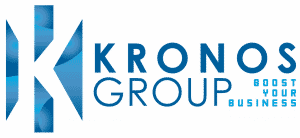Maturity assessments and a reliable procurement, finance, and project management strategy

Summary
Strategy is paramount in any business venture. Whether it is to guide your overall business or to reach a specific goal, your company needs strategies for every critical function in order to stay competitive and ahead of the curve.
The best way to ensure that function-specific strategies are creating sustainable infrastructure and supporting more efficient resource allocation is through a maturity assessment.
Maturity assessments identify the stage of growth across your functions and provide insight into the strengths and vulnerabilities they face during this period.
Function-specific strategies are important because they help you align each of your business processes with your overall goals and unites your teams under one shared vision. It also ensures that your function-specific objectives are supportive of your organisational priorities.
Maturity assessments contribute to strategic improvements by offering you insight into each of your critical functions without internal bias, a third-party maturity assessment can help you improve your procurement strategy, financial strategy, or project management strategy. It gives you the information and data you need to back the assumptions that your strategies depend on.
By conducting regular maturity assessments, you can also ensure standardised growth across each of your critical functions as well as more targeted resource allocation.
Business strategies are guides to the future of your business.
It presents a timeline and a path to how you can achieve your business goals by breaking them down into more achievable steps or by implementing the right processes and operations to create a more streamlined method through which these goals can be achieved.
These strategies offer valuable insight into a business’ inner workings and purpose but it does not predict the future. A business may need to adapt these strategies or change them for numerous reasons—positive or negative.
Regardless of the circumstances, maintaining a business strategy is important to chart growth, enhance people development, keep teams on track, and work towards a shared target.
It also helps you prioritise your goals and identify the areas you may need to optimise to improve your business outlook.
The importance of function-specific strategies
As your organisation becomes larger, the possibility of a disconnect between your overall company vision and the vision of each function becomes more likely.
Although each of your critical functions is integrated and affected by the processes and operations of the others, it is unlikely that your procurement teams, finance teams, and project management teams work closely together at all times.
This means that aligning each function with overall business goals may not always be as straightforward as it appears.
Aligning the goals of each function with your overall vision will also become a more complex challenge as your company grows.
Ensuring that you have the right infrastructure in place to support your individual functions and their contribution to your overall success is vital. When these steps are taken early on in the process, you also make it easier to scale growth up and grow more sustainably and efficiently.
Each business function has its own processes it follows that ultimately contribute to the overall success of your company. This means that each function also requires a specific strategy that guides its growth.
Each critical function from procurement to finance and project management must account for function-specific goals that contribute to your company objectives.
The contribution of maturity assessments to strategic improvements
The more accurate your function-specific strategies are, the more useful they will be to the improvement of your vital functions.
Unfortunately, because your function-specific strategies are created by individuals who are a part of your business teams and are internal to your organisation, there is a possibility that these strategies are swayed by internal bias.
Although this is not an intentional result, it will prevent your functions from achieving sustainable transformation.
A procurement strategy, financial strategy, and project management strategy are accurate when the decisions that have been outlined can be proven and validated through clear facts and evidence. The assumptions that must necessarily guide your strategies can also prove to be sound over time, which will automatically boost the validity of your strategic decision-making.
The ideal maturity assessment must be guided by data collection through surveys and interviews before this information is analysed and compiled in an in-depth report to inform targeted recommendations.
As discussed, there are many factors that influence the reliability of your function-specific strategies. A key way through which you can create more dependable strategies, however, is through a function-specific maturity assessment.
Your company is growing constantly. As you achieve your goals and enjoy greater growth, your needs, functions, and processes will also adapt to make way for more sustainable efficiency and loftier goals.
As you grow, you reach different stages in your business maturity. From your initial days as a startup or small business to an industry leader and benchmark to other companies operating in the same industry.
A maturity assessment helps you define the stage of your growth and the specific strengths and possible vulnerabilities your function may be subject to during this stage of your business trajectory. Through the insights of a maturity assessment, you will be able to support your strategy with real-time, reliable data.
The necessity of standardised growth across your functions
Depending on the strength of your team and the nature of your company, your critical functions may be at different stages of their maturity.
This will hold you back from organisational efficiency and create challenges further down the line as the lack of consistent infrastructure prevents your more high-value functions from enjoying further growth.
A cutting-edge maturity assessment can give you swift insights into the strengths and weaknesses of each of your functions and what your operations need to thrive.
It will also inform your resource allocation and prioritisation and benchmarking, which will ultimately help you grow each function on similar timelines for more sustainable efficiency.
Enjoy swift maturity assessments for swifter decision-making
Whether you are striving for procurement excellence or excellence across any other function in your organisation, you need to facilitate swift decision-making.
If you do not have the infrastructure in place to make informed decisions on an accelerated timeline, you leave yourself vulnerable to falling behind and losing your competitive edge.
Prepare your procurement strategy, financial strategy, and project management strategy for greater resilience with an industry-leading maturity assessment today.
Not only will this help you focus on higher value addition processes and solutions, but it also helps you recognise the right target operating model and accelerate your digital maturity.




